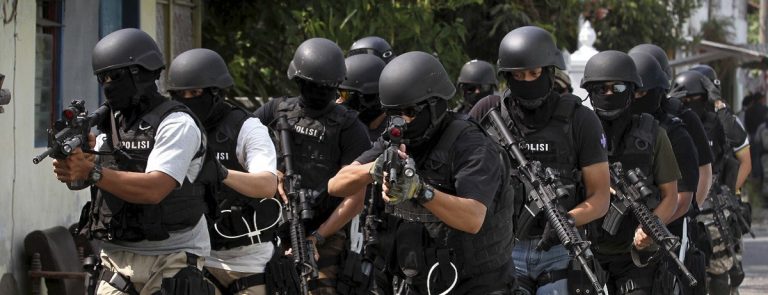
In a move to protect national integration, the Indonesian government will be introducing a new rule to contain the spread of radical views in its universities, the Jakarta Post reports.
Radicalism has seeped into all academic levels across the country, from students to lecturers, according to the Research, Technology and Higher Education Ministry. This is said to create a high risk of national disintegration, hence the new regulation to counter this.
“We are preparing the anti-radicalism regulation as an anticipatory measure. We have included the state defence [bela negara] and the archipelagic outlook [wawasan kebangsaan] into our school curriculum since 2016,” Research, Technology and Higher Education Minister Mohammad Nasir said last weekend.
“The four state pillars, namely the Unitary State of the Republic of Indonesia [NKRI], the state ideology of Pancasila, the 1945 Constitution and national motto Bhinneka Tunggal Ika [Unity in Diversity] must be guarded,” he said.
Saudi funding of Salafists is helping to spread a harsh and intolerant form of Islam in Indonesia. https://t.co/NPjlFaurMv pic.twitter.com/EZbrRC8fqN
— Kenneth Roth (@KenRoth) May 7, 2017
While the country is traditionally known for its moderate version of “Islam Nusantara”, analysts say Saudi money that poured into the country in the past decades to fund schools and universities has brought its strict brand of Islam into the Southeast Asian country and its campuses, fueling a rise of conservatism among its citizens.
Indonesia’s Religious Affairs Ministry had previously voiced concern over the completely Saudi-funded Institute for the Study of Islam and Arabic (Lipia)’s stance of Islam, i.e. whether the school will uphold the state’s brand of moderate Islam and its state philosophy, of which religious tolerance is enshrined. Its officers were reported saying they were worried about Lipia’s alumni, who were big fans of khilafah (the caliphate of the Islamic State).
Holding universities accountable
Speaking in front of students at Semarang State University on Saturday, government officials continued the administration’s efforts to counter rising radicalism in the country that has seen a string of attacks linked to the IS last year.
Indonesian Islamic State militant handed eight-year jail term for Jakarta attack https://t.co/ypcUydavNf
— The Japan Times (@japantimes) October 25, 2016
In front of thousands of students from Central Java and Yogyakarta, the education minister and counterterrorism agency made joint calls for university administrators to nip problems from “radical teachings” in the bud before it spreads.
Gen. Suhardi Alius, who heads the National Counterterrorism Agency said students, as the next generation of the nation, had to be kept away from radicalism, drug abuse and other negative influences. Lecturers, deans and rectors are responsible for identifying students with suspicious behaviour.
“Each institution has regulations, which carry sanctions, to prevent the spread of such teachings,” Mohammad Nasir said.
Liked this? Then you’ll love these…
Treading middle ground: How these students plan to change Malaysia’s political reality
Courageous start for students as American University of Afghanistan reopens







